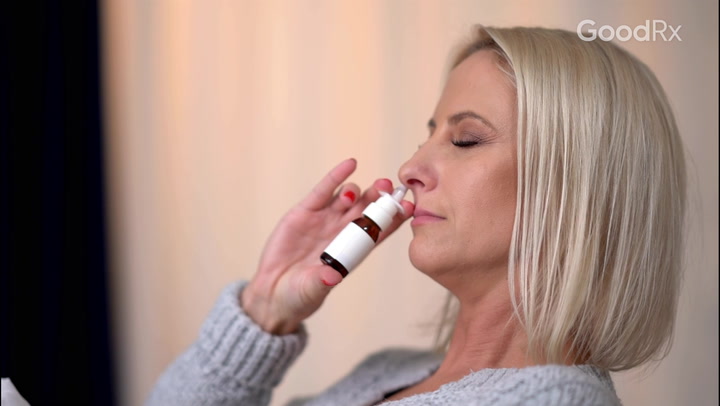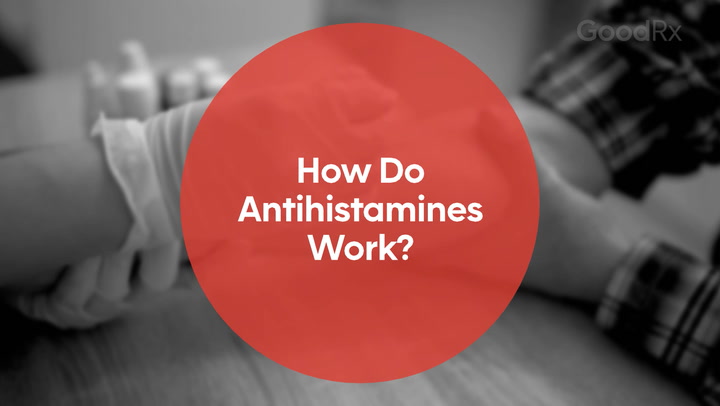
5 Allergy Medications That Are Safe During Pregnancy (Plus, Medications to Avoid)
Key takeaways:
There are several allergy medications that are safe to take during pregnancy. But some have more safety data to support their use during pregnancy than others.
Most nasal steroid sprays, such as Rhinocort (budesonide), are safe to use during pregnancy. Oral antihistamines, such as Zyrtec (cetirizine), are also generally safe. These two types of allergy medications are also among the most effective.
You should avoid Nasacort (triamcinolone) and nasal decongestants, such as Sudafed (pseudoephedrine), during pregnancy. Some studies have shown these allergy medications may raise the risk of certain birth defects.
Table of contents

A runny nose, sneezing, and watery eyes — seasonal allergies are no fun. In most cases, people have dozens of options when selecting allergy medication. But if you’re pregnant, your choices can be more limited when it comes to all medications.
The good news is that there are still several allergy medications that are safe to take during pregnancy. Below, we’ll discuss safe options to consider, plus which ones to avoid. Though, keep in mind that everyone’s risks are unique during pregnancy. So it’s always a good idea to double check with your prenatal care team before starting any new treatments.
Quiz: Am I pregnant?
Which allergy medications are safe during pregnancy?
There are many allergy medications that are safe to take during pregnancy. Below, we review five of them.
Search and compare options
1. Most steroids nasal sprays, such as Rhinocort
Nasal corticosteroid (“steroid”) sprays are a first-choice option for allergy treatment and prevention. Many are available over the counter (OTC). And almost all of them are safe to use if you’re pregnant.
Nasal steroid sprays that are safe to use during pregnancy include:
Rhinocort Allergy (budesonide)
Flonase Sensimist (fluticasone furoate)
Nasonex (mometasone)
Flonase Allergy Relief (fluticasone propionate)
Of these, Rhinocort is the preferred steroid spray to use during pregnancy.
2. Most oral antihistamines, such as Zyrtec
Oral antihistamines are often a go-to choice for allergy symptoms, since they start working within a few hours. Experts consider it safe to take most oral antihistamines during pregnancy. There’s no evidence that these allergy medications cause harm to a human fetus. But some antihistamines have more safety data available than others.
Well-studied antihistamines that are safe to take during pregnancy include:
Benadryl (diphenhydramine)
Chlorpheniramine
Claritin (loratadine)
Xyzal (levocetirizine)
Zyrtec (cetirizine)
Allegra (fexofenadine) is also likely safe to take during pregnancy. But this antihistamine hasn’t been as well studied as those listed above. Let your prenatal care team know if you’re already taking Allegra. They can determine if you should continue taking it or switch to another antihistamine.
Good to know: Older oral antihistamines, such as Benadryl, can cause dizziness and drowsiness. These side effects can raise your risk of falls or accidental injury. Newer antihistamines, such as Claritin, are less likely to cause drowsiness, however.
3. Antihistamine nasal sprays, such as Astepro
Antihistamine nasal sprays are another type of allergy medication that are likely safe during pregnancy. These medications work faster than oral antihistamines. But only Astepro (azelastine) is available OTC.
Antihistamine nasal sprays haven’t been as well studied for use during pregnancy as oral antihistamines. Based on available animal studies, and what we know about oral antihistamines, experts believe they’re likely safe. But it’s a good idea to double check with your prenatal care team about whether antihistamine nasal sprays are a good option for you.
4. Singulair (montelukast)
Singulair (montelukast) is a leukotriene receptor antagonist. It’s typically prescribed when other allergy medications haven’t worked well enough. It can also be helpful for people who have both allergies and asthma.
Small studies suggest that Singulair doesn’t appear to cause any major birth defects. Larger studies are needed to confirm this. But Singulair could be a possible second-choice option if other allergy medications aren’t effective enough.
5. Nasalcrom
Nasalcrom (cromolyn) is a mast cell stabilizer that has been around for several decades. It’s one of the safest allergy medications to take during pregnancy. But it’s less effective than the medications discussed above.
Nasalcrom also takes several weeks to start working. But it could be an option to consider if you’re unable to take other allergy medications.
What allergy medications should you avoid during pregnancy?
Knowing which allergy medications to avoid during pregnancy is just as important as knowing which ones are safe. The medications listed below have either been shown to raise the risk of birth defects or don’t have enough safety data to support their use.
Nasal decongestants
You should avoid nasal decongestants, such as Sudafed (pseudoephedrine), unless told otherwise by your prenatal care team. This includes decongestant nasal sprays, such as Afrin (oxymetazoline).
The studies on taking nasal decongestants during pregnancy are limited and conflicting. Some studies show a higher rate of birth defects, while others don’t. The American College of Obstetricians and Gynecologists recommends avoiding decongestants during your first trimester (the first 3 months of a pregnancy). But it’s possible your prenatal care team may recommend avoiding them throughout your entire pregnancy.
Nasacort
As discussed earlier, most nasal steroid sprays are safe to use during pregnancy. But Nasacort (triamcinolone) may not be. A small study suggests Nasacort may raise the risk for certain lung birth defects. Larger studies would be needed to confirm this. But, to be safe, it’s recommended to avoid Nasacort during pregnancy.
What other allergy treatments are safe during pregnancy?
If you’re pregnant, you may prefer to avoid allergy medications altogether. That’s understandable, as all medications can cause side effects. And there are plenty of natural, medication-free remedies for allergies during pregnancy.
Here are some at-home allergy relief tips for outdoor allergies:
Staying inside when the pollen counts in your area are high
Wearing a mask while outdoors
Using a saline nasal rinse, such as a neti pot, to wash away pollen and other allergens that may be stuck in your nose
Using a saline nasal spray to help moisturize your nose and sinuses
Closing your windows to keep pollen out of your house
If you have indoor allergies, you can try:
Vacuuming rugs or carpets at least every 2 weeks
Washing your sheets and other bed linens in hot water and drying them on high heat at least every 2 weeks
Cleaning off any mildew or mold you can see in bathrooms
And if you have pet allergies, consider:
Avoiding spaces that typically have lots of animals, such as the vet’s office, when possible
Keeping your pets off upholstered furniture as much as you can
Designating one room of your home as a “pet-free” room, so you can have a space that’s less likely to trigger allergy symptoms
The bottom line
There are several allergy medications that are safe to take during pregnancy. Most nasal steroid sprays, such as Rhinocort (budesonide), and oral antihistamines, such as Zyrtec (cetirizine), are both safe and effective.
During pregnancy, you should avoid Nasacort (triamcinolone) and nasal decongestants, such as Sudafed (pseudoephedrine). Some small studies have shown these medications may harm a fetus. Discuss which allergy medication might be best for you to take during pregnancy with your prenatal care team.
Why trust our experts?


References
Allergy & Asthma Network. (n.d.). Pregnancy and allergies.
American College of Obstetricians and Gynecologists. (n.d.). What medicine can I take for allergies while I'm pregnant?
Andersson, N. W., et al. (2020). Association between fexofenadine use during pregnancy and fetal outcomes. JAMA Pediatrics.
Bérard, A., et al. (2016). Intranasal triamcinolone use during pregnancy and the risk of adverse pregnancy outcomes. The Journal of Allergy and Clinical Immunology.
GlaxoSmithKline Consumer Healthcare Holdings (US) LLC. (2023). Flonase Sensimist Allergy Relief- fluticasone furoate spray, metered [package insert]. DailyMed.
Greenberger, P., et al. (1978). Safety of therapy for allergic symptoms during pregnancy. Annals of Internal Medicine.
Kar, S., et al. (2012). A review of antihistamines used during pregnancy. Journal of Pharmacology & Pharmacotherapeutics.
Koren, G., et al. (2010). Safety of using montelukast during pregnancy. Canadian Family Physician.
Pfaller, B., et al. (2021). Management of allergic diseases in pregnancy. Allergy.

























